
Here you can study for the exam. Look up keywords and learn definitions about all kind of subjects.
More subjects
Mogadishu (/ˌmɒɡəˈdiːʃuː, -ˈdɪʃ-/, also US: /ˌmoʊɡ-, ˌmɔːɡ-/; Somali: Muqdisho [mʉq'dɪ:ʃɔ] or Xamar [ħɑmɑr]; Arabic: مقديشو, locally known as Xamar or Hamar, is the capital and most populous city of Somalia. The city has served as an important port connecting traders across the Indian Ocean for millennia, and has an estimated urban population of 4,249,083 (2023). Mogadishu is located in the coastal Banadir region on the Indian Ocean, which unlike other Somali regions, is considered a municipality rather than a maamul goboleed (federal state). (Source: Wikipedia.org, CC BY-SA)
Bloemfontein, (/ˈbluːmfɒnteɪn/ BLOOM-fon-tayn; Afrikaans: [ˈblumfɔntɛin]) also known as Bloem, is the capital and the largest city of the Free State province in South Africa. It is often, and has been traditionally referred to as the country's 'judicial capital', alongside the legislative capital Cape Town and administrative capital Pretoria, although the highest court in South Africa, the Constitutional Court has been in Johannesburg since 1994. Situated at an elevation of 1,395 m (4,577 ft) above sea level, the city is home to approximately 700,000(as of 2022) residents and forms part of the Mangaung Metropolitan Municipality which has a population of 938727. It was one of the host cities for the 2010 FIFA World Cup. (Source: Wikipedia.org, CC BY-SA)
Cape Town (Afrikaans: Kaapstad, [ˈkɑːpstat]; Xhosa: iKapa, [íkáːpa]), also known as the Mother City, is South Africa's oldest city. It serves as the country's legislative capital, being the seat of the South African Parliament. It is the country's second-largest city (after Johannesburg) and the largest in the Western Cape. The city is part of the City of Cape Town metropolitan municipality. The city is known for its harbour, its natural setting in the Cape Floristic Region, and for landmarks such as Table Mountain and Cape Point. In 2014, Cape Town was named the best place in the world to visit by The New York Times and similarly by The Daily Telegraph in 2016. (Source: Wikipedia.org, CC BY-SA)
Pretoria (PREE-tor-ya Afrikaans: [prəˈtʊəria] ) is South Africa's administrative capital, serving as the seat of the executive branch of government, and as the host to all foreign embassies to South Africa. Pretoria is the central part of the City of Tshwane Metropolitan Municipality which was formed by the amalgamation of several former local authorities, including Bronkhorstspruit, Centurion, Cullinan, Hammanskraal and Soshanguve. Some have proposed changing the official name from Pretoria to Tshwane, which has caused some public controversy. (Source: Wikipedia.org, CC BY-SA)
Seoul (/soʊl/; Korean: [sʰʌul] ; lit. 'Capital'), officially known as the Seoul Special City, is the capital and largest metropolis of South Korea. According to the 2020 census, Seoul has a population of 9.9 million people, and forms the heart of the Seoul Capital Area with the surrounding Incheon metropolis and Gyeonggi province. Considered to be a global city and rated as an Alpha – City by Globalization and World Cities Research Network (GaWC), Seoul was the world's fourth largest metropolitan economy in 2014, following Tokyo, New York City and Los Angeles. (Source: Wikipedia.org, CC BY-SA)
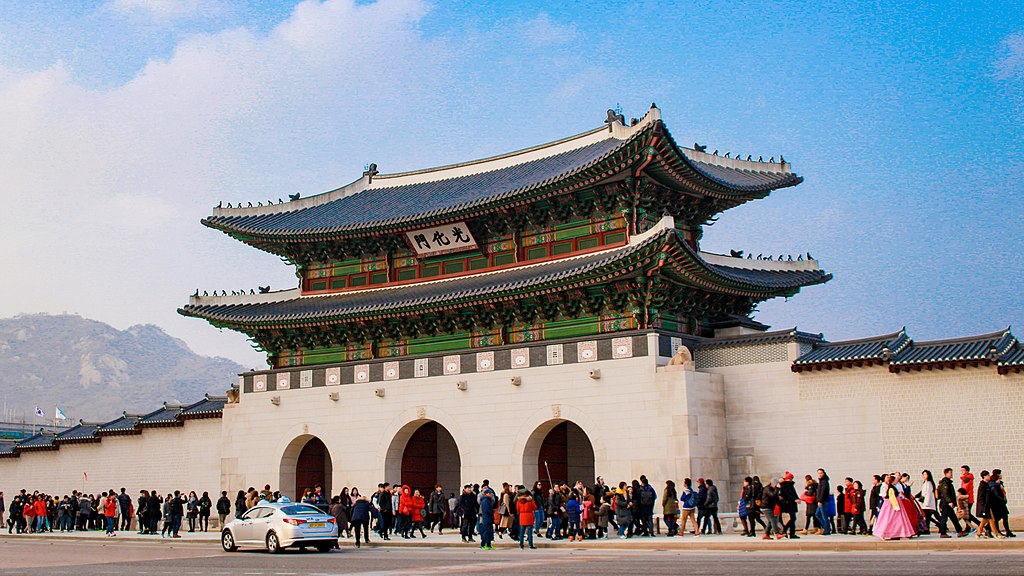 © Wikimedia.org/Eunmi Park, CC BY-SA
© Wikimedia.org/Eunmi Park, CC BY-SA
Juba (/ˈdʒuːbə/) is the capital and largest city of South Sudan. The city is situated on the White Nile and also serves as the capital of the Central Equatoria State. It is the world's newest capital city to be elevated as such, and had a population of 525,953 in 2017. It has an area of 52 km2 (20 sq mi), with the metropolitan area covering 336 km2 (130 sq mi). Juba became the world's newest national capital on 9 July 2011, when South Sudan formally declared its independence from the Republic of the Sudan. However, influential parties including the South Sudanese government expressed dissatisfaction with the city's suitability as a national capital, and the government proposed that a new planned city be built as a replacement capital elsewhere, most likely Ramciel in Lakes. (Source: Wikipedia.org, CC BY-SA)
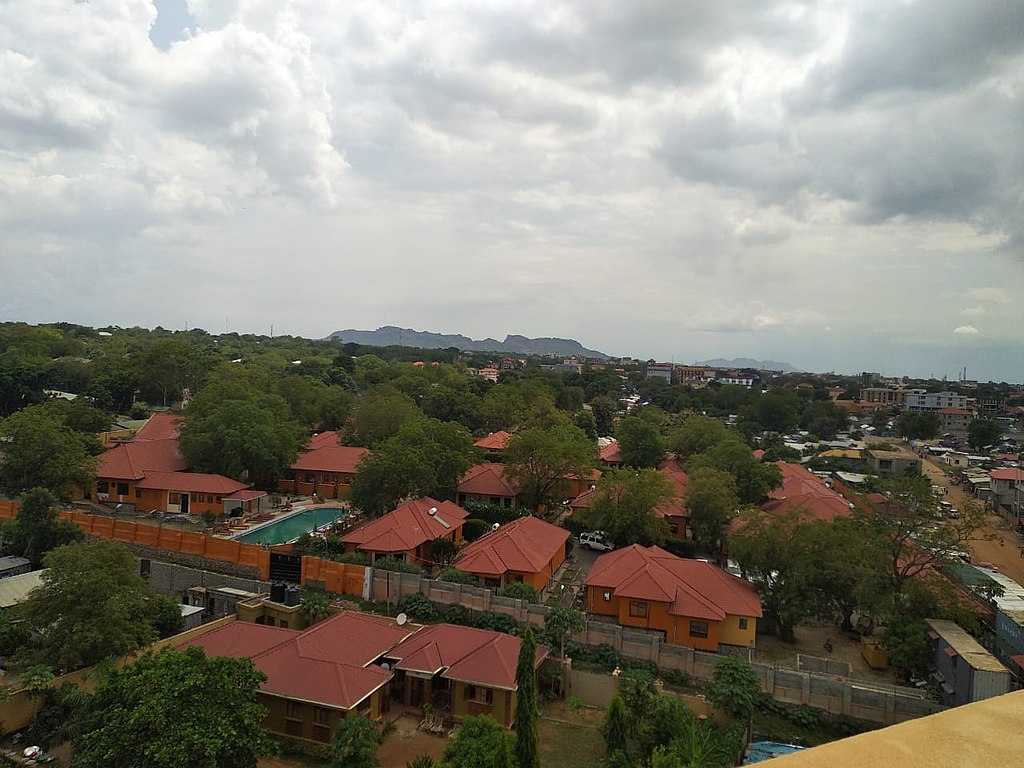 © Wikimedia.org/Umar sheriff habibullah, CC BY-SA
© Wikimedia.org/Umar sheriff habibullah, CC BY-SA
Madrid (/məˈdrɪd/ mə-DRID, Spanish: [maˈðɾið])[n. 1] is the capital and most populous city of Spain. The city has almost 3.4 million inhabitants and a metropolitan area population of approximately 6.7 million. It is the second-largest city in the European Union (EU), and its monocentric metropolitan area is the second-largest in the EU. The municipality covers 604.3 km2 (233.3 sq mi) geographical area. Madrid lies on the River Manzanares in the central part of the Iberian Peninsula. Capital city of both Spain (almost without interruption since 1561) and the surrounding autonomous community of Madrid (since 1983), it is also the political, economic and cultural centre of the country. The city is situated on an elevated plain about 300 km (190 mi) from the closest seaside location. The climate of Madrid features hot summers and cool winters. (Source: Wikipedia.org, CC BY-SA)
Sri Jayawardenepura Kotte, commonly known as Kotte (pronounced [ˈkoːʈeː]), is the legislative capital of Sri Lanka. Sri Jayawardenepura Kotte is located adjacent to the urban area of Sri Lanka's de facto economic, executive, and judicial capital, Colombo. Cricket is the most popular sport in this urban area as well as the country and is usually played in the grounds around the city. Association football was at one time the most popular sport in the Colombo area, although it was eclipsed by cricket after 1980. (Source: Wikipedia.org, CC BY-SA)
Khartoum or Khartum (/kɑːrˈtuːm/ kar-TOOM; Arabic: الخرطوم, romanized: Al-Khurṭūm, Dinka: Kaartuɔ̈m) is the capital of Sudan. With a population of 5,274,321, its metropolitan area is the largest in Sudan. It is located at the confluence of the White Nile, flowing north from Lake Victoria, and the Blue Nile, flowing west from Lake Tana in Ethiopia. The place where the two Niles meet is known as al-Mogran or al-Muqran (المقرن; English: 'The Confluence'). From there, the Nile continues north towards Egypt and the Mediterranean Sea. Divided by these two parts of the Nile, Khartoum is a tripartite metropolis with an estimated population of over five million people, consisting of Khartoum proper, and linked by bridges to Khartoum North (الخرطوم بحري al-Kharṭūm Baḥrī) and Omdurman (أم درمان Umm Durmān) to the west. (Source: Wikipedia.org, CC BY-SA)
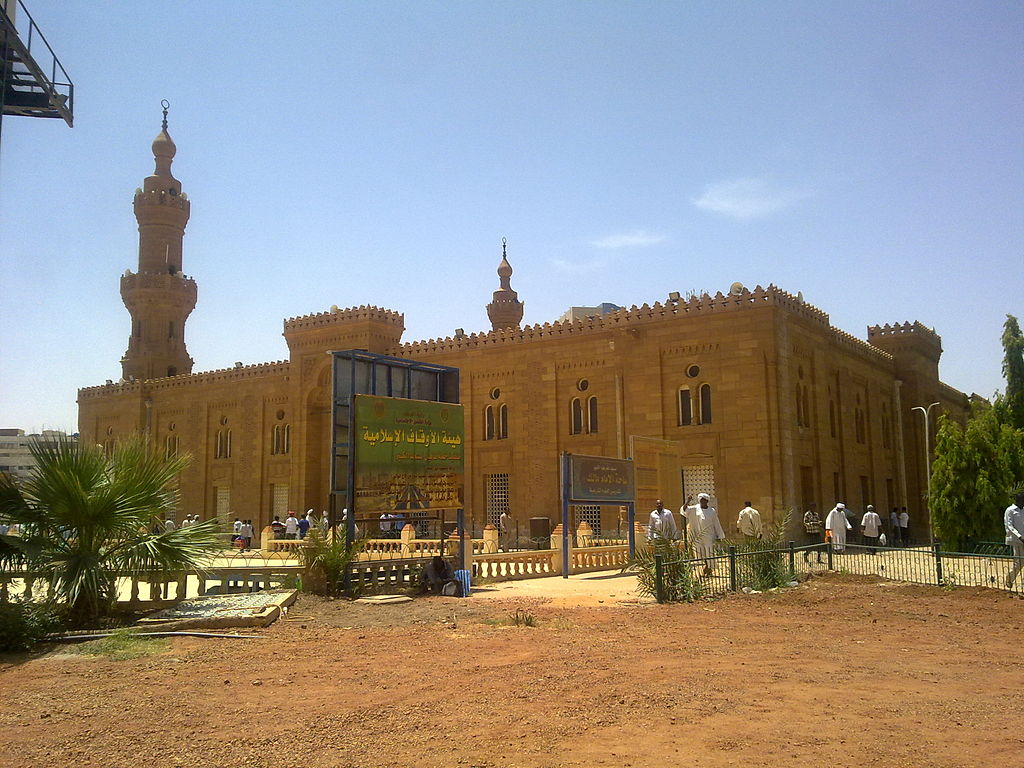 © Wikimedia.org/Azri Alhaq, CC BY-SA
© Wikimedia.org/Azri Alhaq, CC BY-SA
Paramaribo (/ˌpɑːrəˈmɑːrɪboʊ/; Dutch pronunciation: [ˌpaːraːˈmaːriboː]; nicknamed Par'bo[citation needed]) is the capital and largest city of Suriname, located on the banks of the Suriname River in the Paramaribo District. Paramaribo has a population of roughly 241,000 people (2012 census), almost half of Suriname's population. The historic inner city of Paramaribo has been a UNESCO World Heritage Site since 2002. (Source: Wikipedia.org, CC BY-SA)
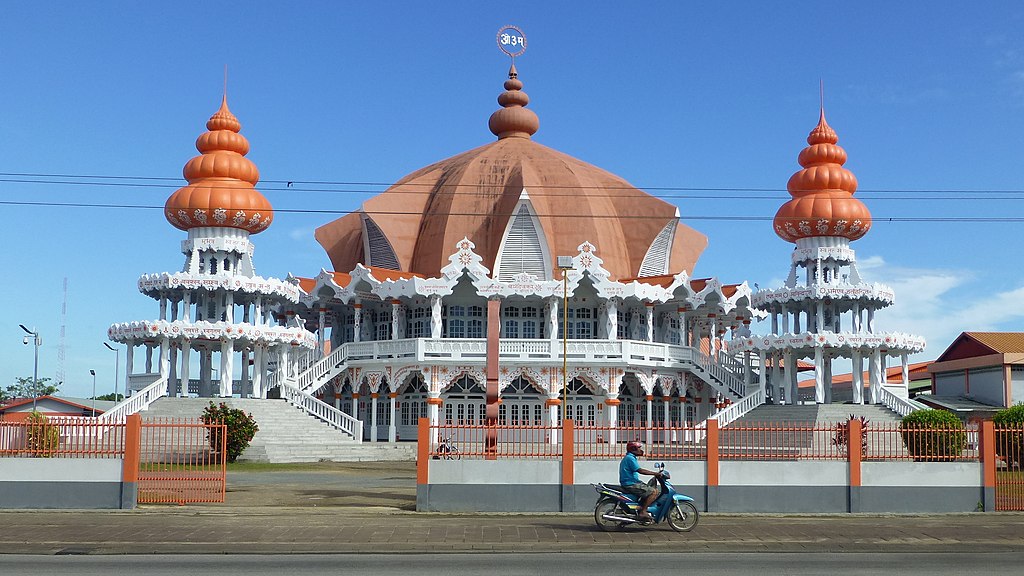 © Wikimedia.org/ Freek L. Bakker, CC BY-SA
© Wikimedia.org/ Freek L. Bakker, CC BY-SA
Stockholm (Swedish: [ˈstɔ̂kː(h)ɔlm] ) is the capital and largest city of Sweden as well as the largest urban area in Scandinavia. Approximately 990,000 people live in the municipality, with 1.6 million in the urban area, and 2.5 million in the metropolitan area. The city stretches across fourteen islands where Lake Mälaren flows into the Baltic Sea. Outside the city to the east, and along the coast, is the island chain of the Stockholm archipelago. The area has been settled since the Stone Age, in the 6th millennium BC, and was founded as a city in 1252 by Swedish statesman Birger Jarl. It is also the county seat of Stockholm County. For several hundred years, Stockholm was the capital of Finland as well (Finnish: Tukholma), which was then a part of Sweden. The population of the municipality of Stockholm is expected to reach one million people in 2024. (Source: Wikipedia.org, CC BY-SA)
Bern (Swiss Standard German: [bɛrn] ) or Berne is the de facto capital of Switzerland, referred to as the 'federal city'. With a population of about 133,000 (as of 2022), Bern is the fifth-most populous city in Switzerland, behind Zurich, Geneva, Basel and Lausanne. The Bern agglomeration, which includes 36 municipalities, had a population of 406,900 in 2014. The metropolitan area had a population of 660,000 in 2000. Bern is also the capital of the canton of Bern, the second-most populous of Switzerland's cantons. The official language is German, but the main spoken language is the local variant of the Alemannic Swiss German dialect, Bernese German. In 1983, the historic old town (in German: Altstadt) in the centre of Bern became a UNESCO World Heritage Site. It is notably surrounded by the Aare, a major river of the Swiss Plateau. (Source: Wikipedia.org, CC BY-SA)
Damascus (/dəˈmæskəs/ də-MASS-kəs, UK also /dəˈmɑːskəs/ də-MAH-skəs; Arabic: دمشق, romanized: Dimashq, IPA: [diˈmaʃq]) is the capital of Syria, the oldest capital in the world and, according to some, the fourth holiest city in Islam. Known colloquially in Syria as aš-Šām (الشَّام) and dubbed, poetically, the 'City of Jasmine' (مَدِينَةُ الْيَاسْمِينِ Madīnat al-Yāsmīn), Damascus is a major cultural center of the Levant and the Arab world. Situated in southwestern Syria, Damascus is the center of a large metropolitan area. Nestled among the eastern foothills of the Anti-Lebanon mountain range 80 kilometres (50 mi) inland from the eastern shore of the Mediterranean on a plateau 680 metres (2,230 ft) above sea level, Damascus experiences a dry climate because of the rain shadow effect. The Barada River flows through Damascus. (Source: Wikipedia.org, CC BY-SA)
Taipei (/ˌtaɪˈpeɪ/), officially Taipei City, is the capital and a special municipality of the Republic of China (Taiwan). Located in Northern Taiwan, Taipei City is an enclave of the municipality of New Taipei City that sits about 25 km (16 mi) southwest of the northern port city of Keelung. Most of the city rests on the Taipei Basin, an ancient lakebed. The basin is bounded by the relatively narrow valleys of the Keelung and Xindian rivers, which join to form the Tamsui River along the city's western border. (Source: Wikipedia.org, CC BY-SA)
Dushanbe (Tajik: Душанбе, IPA: [duʃæmˈbe]; Persian: دوشنبه, lit. 'Monday'; Russian: Душанбе) is the capital and largest city of Tajikistan. As of January 2022, Dushanbe had a population of 1,201,800 and that population was largely Tajik. Until 1929, the city was known in Russian as Dyushambe (Russian: Дюшамбе, Dyushambe), and from 1929 to 1961 as Stalinabad (Tajik: Сталинобод, romanized: Stalinobod), after Joseph Stalin. Dushanbe is located in the Gissar Valley, bounded by the Gissar Range in the north and east and the Babatag, Aktau, Rangontau and Karatau mountains in the south, and has an elevation of 750–930 m. The city is divided into four districts, all named after Persian historical figures: Ismail Samani, Avicenna, Ferdowsi, and Shah Mansur. (Source: Wikipedia.org, CC BY-SA)
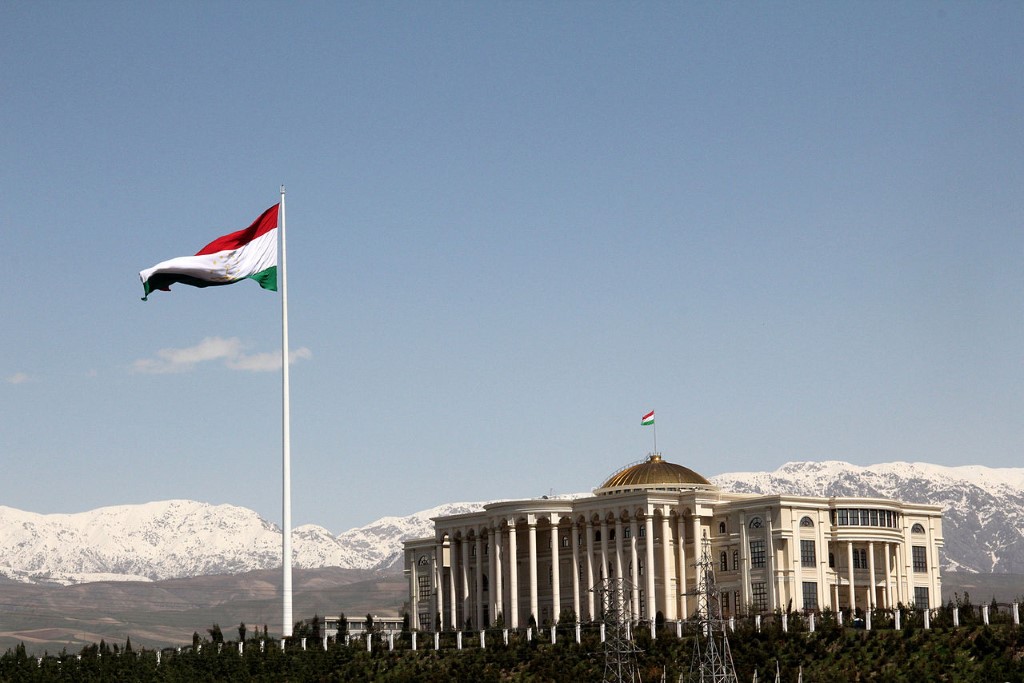 © Wikimedia.org/Rjruiziii, CC BY-SA
© Wikimedia.org/Rjruiziii, CC BY-SA
Dodoma (lit. 'It has sunk' in Gogo), officially Dodoma City, is the national capital of Tanzania and the capital of the Dodoma Region, with a population of 410,956. In 1974, the Tanzanian government announced that the capital would be moved to Dodoma for social and economic reasons and to centralise the capital within the country. It became the official capital in 1996. Much of the initial design did not come to fruition for a long time. As a result, Dar es Salaam remains the commercial capital of Tanzania and still retains the state house Ikulu, and a large number of government functions. (Source: Wikipedia.org, CC BY-SA)
Bangkok, officially known in Thai as Krung Thep Maha Nakhon and colloquially as Krung Thep, is the capital and most populous city of Thailand. The city occupies 1,568.7 square kilometres (605.7 sq mi) in the Chao Phraya River delta in central Thailand and has an estimated population of 10.539 million as of 2020, 15.3 percent of the country's population. Over 14 million people (22.2 percent) lived within the surrounding Bangkok Metropolitan Region at the 2010 census, making Bangkok an extreme primate city, dwarfing Thailand's other urban centres in both size and importance to the national economy. (Source: Wikipedia.org, CC BY-SA)
Nassau (/ˈnæsɔː/ NASS-aw) is the capital and largest city of the Bahamas. With a population of 246,329 as of 2010, or just over 70% of the entire population of the Bahamas, Nassau is commonly defined as a primate city, dwarfing all other towns in the country. It is the centre of commerce, education, law, administration, and media of the country. Lynden Pindling International Airport, the major airport for the Bahamas, is located about 16 km (9.9 mi) west of the city centre of Nassau, and has daily flights to major cities in Canada, the Caribbean, the United Kingdom and the United States. The city is located on the island of New Providence. (Source: Wikipedia.org, CC BY-SA)
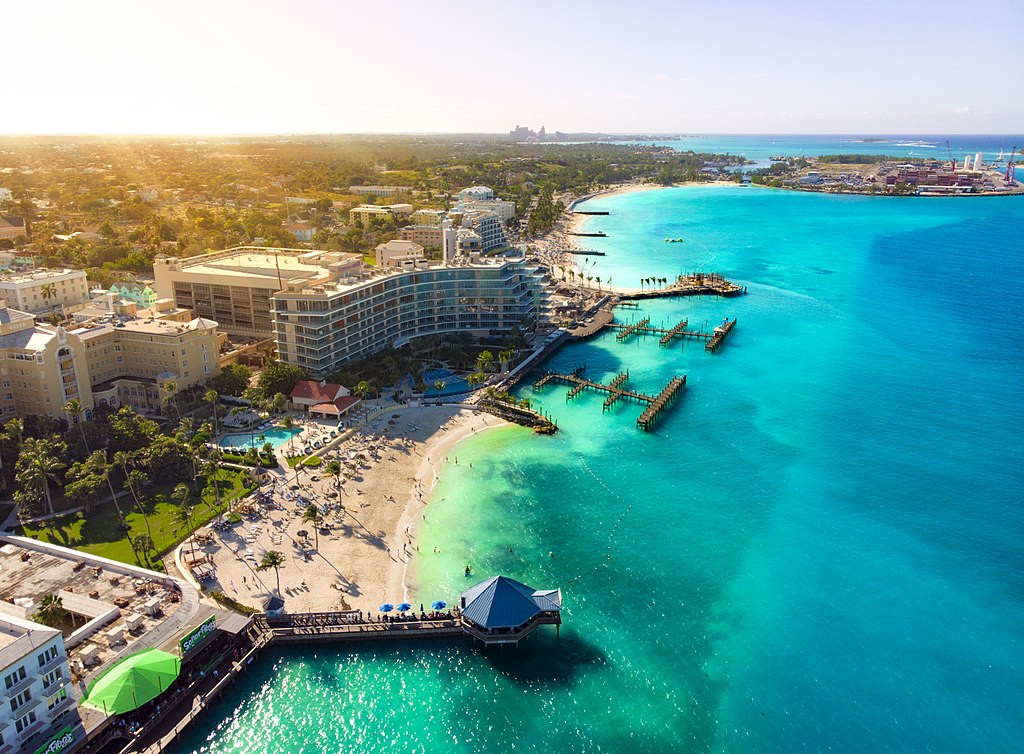 © Wikimedia.org/ParsonsPhotographyNL, CC BY-SA
© Wikimedia.org/ParsonsPhotographyNL, CC BY-SA
Lomé (UK: /ˈloʊmeɪ/ LOH-may, US: /loʊˈmeɪ/ loh-MAY) is the capital and largest city of Togo. It has an urban population of 837,437 while there were 1,477,660 permanent residents in its metropolitan area as of the 2010 census. Located on the Gulf of Guinea at the southwest corner of the country, with its entire western border along the easternmost point of Ghana's Volta Region, Lomé is the country's administrative and industrial center, which includes an oil refinery. It is also the country's chief port, from where it exports coffee, cocoa, copra, and oil palm kernels. Its city limits extends to the border with Ghana, located a few hundred meters west of the city center, to the Ghanaian city of Aflao and the South Ketu district where the city is situated, had 160,756 inhabitants in 2010. The cross-border agglomeration of which Lomé is the centre, has about 2 million inhabitants as of 2020. (Source: Wikipedia.org, CC BY-SA)
Nukuʻalofa (/nuku.ˈəloʊfə/; Tongan: [nukuʔaˈlofa]) is the capital and largest city of Tonga. It is located on the north coast of the island of Tongatapu, in the country's southernmost island group. In 2006, lack of progress towards democracy resulted in riots in Nuku'Alofa. During the riots, much of the central business district was burned down. The capital city was struck by the tsunami caused by the 2022 Hunga Tonga–Hunga Ha'apai eruption. There is reportedly significant damage to the capital. The damage might take years to repair. (Source: Wikipedia.org, CC BY-SA)
 © Wikimedia.org/Uhooep, CC BY-SA
© Wikimedia.org/Uhooep, CC BY-SA
Port of Spain (Spanish: Puerto España [ˈpweɾto esˈpaɲa]), officially the City of Port of Spain (also stylized Port-of-Spain), is the capital of Trinidad and Tobago and the third largest municipality, after Chaguanas and San Fernando. The city has a municipal population of 37,074 (2011 census), an urban population of 81,142 (2011 estimate) and a transient daily population of 250,000. It is located on the Gulf of Paria, on the northwest coast of the island of Trinidad and is part of a larger conurbation stretching from Chaguaramas in the west to Arima in the east with an estimated population of 600,000. (Source: Wikipedia.org, CC BY-SA)
Tunis (Arabic: تونس Tūnis) is the capital and largest city of Tunisia. The greater metropolitan area of Tunis, often referred to as 'Grand Tunis', has about 2,700,000 inhabitants. As of 2020, it is the third-largest city in the Maghreb region (after Casablanca and Algiers) and the eleventh-largest in the Arab world. Situated on a large Mediterranean Sea gulf (the Gulf of Tunis), behind the Lake of Tunis and the port of La Goulette (Ḥalq il-Wād), the city extends along the coastal plain and the hills that surround it. At its core lies Ancient Medina, a World Heritage Site. East of the Medina, through the Sea Gate (also known as the Bab el Bhar and the Porte de France), begins the modern city 'Ville Nouvelle', traversed by the grand Avenue Habib Bourguiba (often referred to by media and travel guides as 'the Tunisian Champs-Élysées'), where the colonial-era buildings provide a clear contrast to smaller, older structures. Further east by the sea lie the suburbs of Carthage, La Marsa, and Sidi Bou Said. As the capital of the country, Tunis is the focus of Tunisian political and administrative life and also the center of the country's commercial and cultural activities. (Source: Wikipedia.org, CC BY-SA)
Ankara (/ˈæŋkərə/ ANG-kə-rə, US also /ˈɑːŋ-/ AHNG-kə-rə; Turkish: [ˈaŋkaɾa] ), historically known as Ancyra and Angora, is the capital of Turkey. Located in the central part of Anatolia, the city has a population of 5.1 million in its urban center and 5.7 million in Ankara Province, making it Turkey's second-largest city after Istanbul. Serving as the capital of the ancient Celtic state of Galatia (280–64 BC), and later of the Roman province with the same name (25 BC–7th century), the city is very old, with various Hattian, Hittite, Lydian, Phrygian, Galatian, Greek, Persian, Roman, Byzantine, and Ottoman archeological sites. The Ottomans made the city the capital first of the Anatolia Eyalet (1393 – late 15th century) and then the Angora Eyalet (1827–1864) and the Angora Vilayet (1867–1922). The historical center of Ankara is a rocky hill rising 150 m (500 ft) over the left bank of the Ankara River, a tributary of the Sakarya River. The hill remains crowned by the ruins of Ankara Castle. Although few of its outworks have survived, there are well-preserved examples of Roman and Ottoman architecture throughout the city, the most remarkable being the 20 BC Temple of Augustus and Rome that boasts the Monumentum Ancyranum, the inscription recording the Res Gestae Divi Augusti. (Source: Wikipedia.org, CC BY-SA)
Ashgabat or Asgabat (Turkmen: Aşgabat, [ɑʃʁɑˈbɑt]; Persian: عشقآباد, romanized: Ešqābād, formerly named Poltoratsk (Russian: Полтора́цк, IPA: [pəltɐˈratsk]) between 1919 and 1927, is the capital and the largest city of Turkmenistan. It lies between the Karakum Desert and the Kopetdag mountain range in Central Asia, near the Iran-Turkmenistan border. The city was founded in 1881 on the basis of an Ahal Teke tribal village, and made the capital of the Turkmen Soviet Socialist Republic in 1924. Much of the city was destroyed by the 1948 Ashgabat earthquake, but has since been extensively rebuilt under the rule of Saparmurat Niyazov's 'White City' urban renewal project, resulting in monumental projects sheathed in costly white marble. The Soviet-era Karakum Canal runs through the city, carrying waters from the Amu Darya from east to west. Since 2019, the city has been recognized as having one of the highest costs of living in the world largely due to Turkmenistan's inflation and import issues. (Source: Wikipedia.org, CC BY-SA)
Funafuti is the capital of the island nation of Tuvalu. It has a population of 6,320 people (2017 census), and so it has more people than the rest of Tuvalu combined, with approximately 60% of the population. It consists of a narrow sweep of land between 20 and 400 metres (66 and 1,312 feet) wide, encircling a large lagoon (Te Namo) 18 km (11 miles) long and 14 km (9 miles) wide. The average depth of the Funafuti lagoon is about 20 fathoms (36.5 metres or 120 feet). With a surface area of 275 square kilometres (106.2 sq mi), it is by far the largest lagoon in Tuvalu. The land area of the 33 islets around the atoll of Funafuti totals 2.4 square kilometres (0.9 sq mi); taken together, they constitute less than one percent of the total area of the atoll. Cargo ships can enter Funafuti's lagoon and dock at the port facilities on Fongafale. (Source: Wikipedia.org, CC BY-SA)
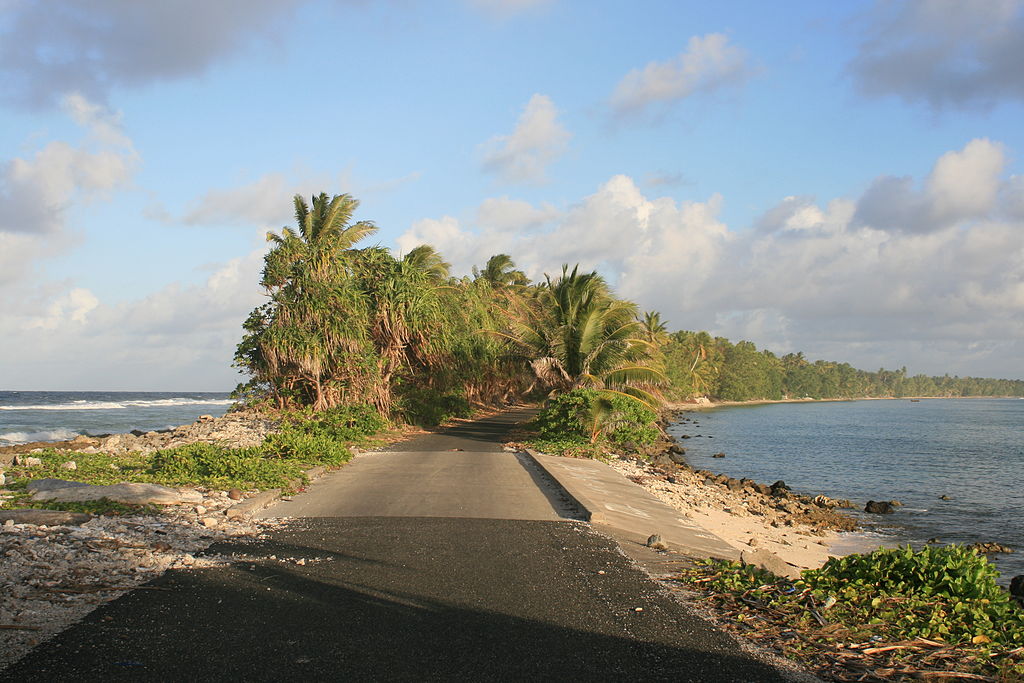 © Wikimedia.org/Davidarfonjones>, CC BY-SA
© Wikimedia.org/Davidarfonjones>, CC BY-SA
Kampala (UK: /kæmˈpɑːlə/, US: /kɑːmˈ-/) is the capital and largest city of Uganda. The city proper has a population of 1,680,000 and is divided into the five political divisions of Kampala Central Division, Kawempe Division, Makindye Division, Nakawa Division, and Rubaga Division. Kampala's metropolitan area consists of the city proper and the neighboring Wakiso District, Mukono District, Mpigi District, Buikwe District and Luweero District. It has a rapidly growing population that is estimated at 6,709,900 people in 2019 by the Uganda Bureau of Statistics in an area of 8,451.9 km2 (3,263.3 square miles). (Source: Wikipedia.org, CC BY-SA)
Kyiv, also spelled Kiev, is the capital and most populous city of Ukraine. It is in north-central Ukraine along the Dnieper River. As of 1 January 2022, its population was 2,952,301, making Kyiv the seventh-most populous city in Europe. Kyiv is an important industrial, scientific, educational, and cultural center in Eastern Europe. It is home to many high-tech industries, higher education institutions, and historical landmarks. The city has an extensive system of public transport and infrastructure, including the Kyiv Metro. (Source: Wikipedia.org, CC BY-SA)
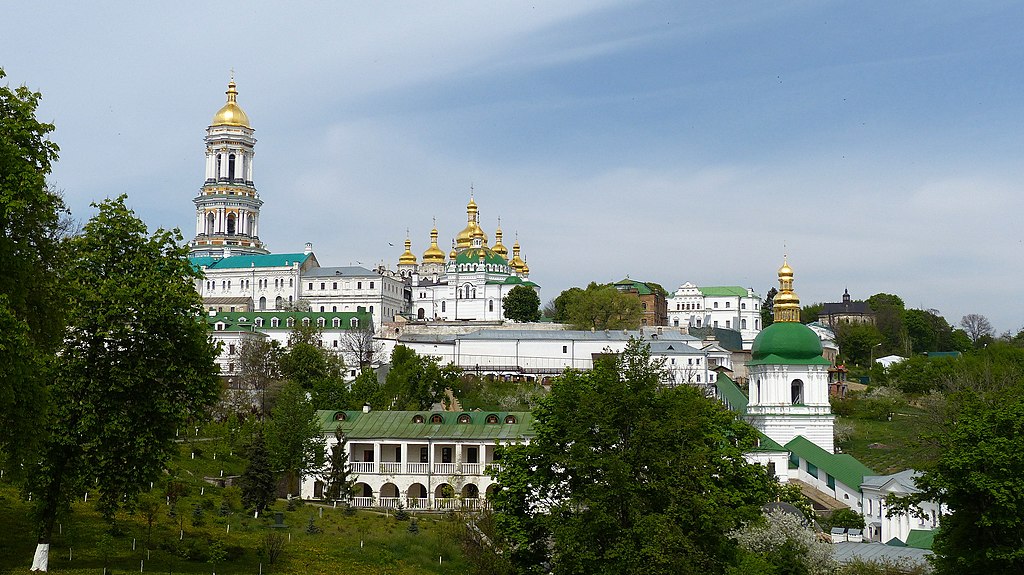 © Wikimedia.org/Nick Grapsy, CC BY-SA
© Wikimedia.org/Nick Grapsy, CC BY-SA
Abu Dhabi (UK: /ˈæbuːˈdæbi/, US: /ˈɑːbuːˈdɑːbi/; Arabic: أَبُو ظَبِي Abū Ẓabī Arabic pronunciation: [ɐˈbuˈðˤɑbi]) is the capital and second-most populous city (after Dubai) of the United Arab Emirates. It is also the capital of the Emirate of Abu Dhabi and the centre of the Abu Dhabi Metropolitan Area. The city of Abu Dhabi is located on an island in the Persian Gulf, off the Central West Coast. Most of the city and the Emirate reside on the mainland connected to the rest of the country. As of 2021, Abu Dhabi's urban area had an estimated population of 1.5 million, out of 2.9 million in the emirate of Abu Dhabi, as of 2016. The Abu Dhabi Investment Authority is headquartered in the city, and was the world's 3rd largest sovereign wealth fund in 2022. Abu Dhabi itself has over a trillion US dollars worth of assets under management in a combination of various sovereign wealth funds headquartered there. (Source: Wikipedia.org, CC BY-SA)
London is the capital and largest city of England and the United Kingdom, with a population of just under 9 million. It stands on the River Thames in south-east England at the head of a 50-mile (80 km) estuary down to the North Sea, and has been a major settlement for two millennia. The City of London, its ancient core and financial centre, was founded by the Romans as Londinium and retains its medieval boundaries. The City of Westminster, to the west of the City of London, has for centuries hosted the national government and parliament. Since the 19th century, the name 'London' has also referred to the metropolis around this core, historically split between the counties of Middlesex, Essex, Surrey, Kent, and Hertfordshire, which since 1965 has largely comprised Greater London, which is governed by 33 local authorities and the Greater London Authority. (Source: Wikipedia.org, CC BY-SA)
Washington, D.C., formally the District of Columbia and commonly known as Washington or D.C., is the capital city and federal district of the United States. The city is located on the east bank of the Potomac River, which forms its southwestern border with Virginia, and borders Maryland to its north and east. The city was named for George Washington, a Founding Father, commanding general of the Continental Army in the American Revolutionary War, and the first president of the United States, and the district is named for Columbia, the female personification of the nation. (Source: Wikipedia.org, CC BY-SA)
 © Wikimedia.org/Martin Falbisoner, CC BY-SA
© Wikimedia.org/Martin Falbisoner, CC BY-SA
Montevideo (Spanish pronunciation: [monteβiˈðeo]) is the capital and largest city of Uruguay. According to the 2011 census, the city proper has a population of 1,319,108 (about one-third of the country's total population) in an area of 201 square kilometers (78 sq mi). Montevideo is situated on the southern coast of the country, on the northeastern bank of the Río de la Plata. The city was established in 1724 by a Spanish soldier, Bruno Mauricio de Zabala, as a strategic move amidst the Spanish-Portuguese dispute over the platine region. It was also under brief British rule in 1807, but eventually the city was retaken by Spanish criollos who defeated the British invasions of the River Plate. Montevideo is the seat of the administrative headquarters of Mercosur and ALADI, Latin America's leading trade blocs, a position that entailed comparisons to the role of Brussels in Europe. (Source: Wikipedia.org, CC BY-SA)
Tashkent (/tæʃˈkɛnt/, Uzbek: Toshkent, Тошкент / تاشکند, US also /tɑːʃ-/, from Russian: Ташкент) or Toshkent (/tɒʃˈkɛnt/; IPA: [tɒʃˈkent]), historically known as Chach, is the capital and largest city of Uzbekistan. It is the most populous city in Central Asia, with a population of 2,909,500 (2022). It is located in northeastern Uzbekistan, near the border with Kazakhstan. Tashkent comes from the Turkic tash and kent, literally translated as 'Stone City' or 'City of Stones'. Before Islamic influence started in the mid-8th century AD, Tashkent was influenced by the Sogdian and Turkic cultures. After Genghis Khan destroyed it in 1219, it was rebuilt and profited from the Silk Road. From the 18th to the 19th century, the city became an independent city-state, before being re-conquered by the Khanate of Kokand. In 1865, Tashkent fell to the Russian Empire; it became the capital of Russian Turkestan. In Soviet times, it witnessed major growth and demographic changes due to forced deportations from throughout the Soviet Union. Much of Tashkent was destroyed in the 1966 Tashkent earthquake, but it was rebuilt as a model Soviet city. It was the fourth-largest city in the Soviet Union at the time, after Moscow, Leningrad and Kyiv. (Source: Wikipedia.org, CC BY-SA)
Port Vila (French: Port-Vila), or simply Vila (English: /ˈviːlə/; French: Vila; Bislama: Vila [viˈla]), is the capital and largest city of Vanuatu. It is located on the island of Efate. Its population in the last census (2009) was 44,040, an increase of 35% on the previous census result (29,356 in 1999). In 2009, the population of Port Vila formed 18.8% of the country's population, and 66.9% of the population of Efate. On the south coast of the island of Efate, in Shefa Province, Port Vila is the economic and commercial centre of Vanuatu. The mayor is Erick Puyo Festa, of the Vanua'aku Pati, elected in January 2018; his deputy is Jenny Regenvanu, of the Graun mo Jastis Pati. On 13 March 2015, Port Vila bore extensive damage from Cyclone Pam. (Source: Wikipedia.org, CC BY-SA)
Vatican City (/ˈvætɪkən/ ), officially Vatican City State (Italian: Stato della Città del Vaticano; Latin: Status Civitatis Vaticanae), is an independent city-state, microstate and enclave within Rome, Italy. It became independent from Italy in 1929 with the Lateran Treaty, and it is a distinct territory under 'full ownership, exclusive dominion, and sovereign authority and jurisdiction' of the Holy See, itself a sovereign entity of international law, which maintains the city state's temporal, diplomatic, and spiritual independence. With an area of 49 hectares (121 acres) and a 2019 population of about 453, it is the smallest state in the world both by area and population. As governed by the Holy See, Vatican City State is an ecclesiastical or sacerdotal-monarchical state ruled by the Pope who is the bishop of Rome and head of the Catholic Church. The highest state functionaries are all Catholic clergy of various origins. After the Avignon Papacy (1309–1377) the popes have mainly resided at the Apostolic Palace within what is now Vatican City, although at times residing instead in the Quirinal Palace in Rome or elsewhere. The Vatican is also a metonym for the Holy See. (Source: Wikipedia.org, CC BY-SA)
Caracas (/kəˈrækəs, -ˈrɑːk-/, Spanish: [kaˈɾakas]), officially Santiago de León de Caracas, abbreviated as CCS, is the capital and largest city of Venezuela, and the center of the Metropolitan Region of Caracas (or Greater Caracas). Caracas is located along the Guaire River in the northern part of the country, within the Caracas Valley of the Venezuelan coastal mountain range (Cordillera de la Costa). The valley is close to the Caribbean Sea, separated from the coast by a steep 2,200-meter-high (7,200 ft) mountain range, Cerro El Ávila; to the south there are more hills and mountains. The Metropolitan Region of Caracas has an estimated population of almost 5 million inhabitants. (Source: Wikipedia.org, CC BY-SA)
Hanoi or Ha Noi (Vietnamese: Hà Nội / 河內, lit. 'Inside of the Rivers' [haː˨˩ noj˧˨ʔ] ), often just referred to as The Capital (Vietnamese: Thủ đô), is the capital and second-largest city of Vietnam. It covers an area of 3,359.82 km2 (1,297.2 sq mi). It consists of 12 urban districts, one district-leveled town and 17 rural districts. It is located within the Red River Delta of Northern Vietnam. A major tourist destination in Vietnam, Hanoi offers well-preserved French colonial architecture, religious sites dedicated to Buddhism, Catholicism, Confucianism and Taoism, several historical landmarks of Vietnamese imperial periods, and a large number of museums. The Central Sector of the Imperial Citadel of Thăng Long in Ba Dinh District was recognized as a UNESCO World Heritage Site in 2010. (Source: Wikipedia.org, CC BY-SA)
Aden (UK: /ˈeɪdən/ AY-dən, US: /ˈɑːdɛn/ AH-den; Arabic: عدن ʿAdin/ʿAdan Yemeni: [ˈʕæden, ˈʕædæn]) is a city, and since 2015, the temporary capital of Yemen, near the eastern approach to the Red Sea (the Gulf of Aden), some 170 km (110 mi) east of the strait Bab-el-Mandeb. Its population is approximately 800,000 people. Aden's natural harbour lies in the crater of a dormant volcano, which now forms a peninsula joined to the mainland by a low isthmus. This harbour, Front Bay, was first used by the ancient Kingdom of Awsan between the 7th to 5th centuries BC. The modern harbour is on the other side of the peninsula. Aden gets its name from the Gulf of Aden. (Source: Wikipedia.org, CC BY-SA)
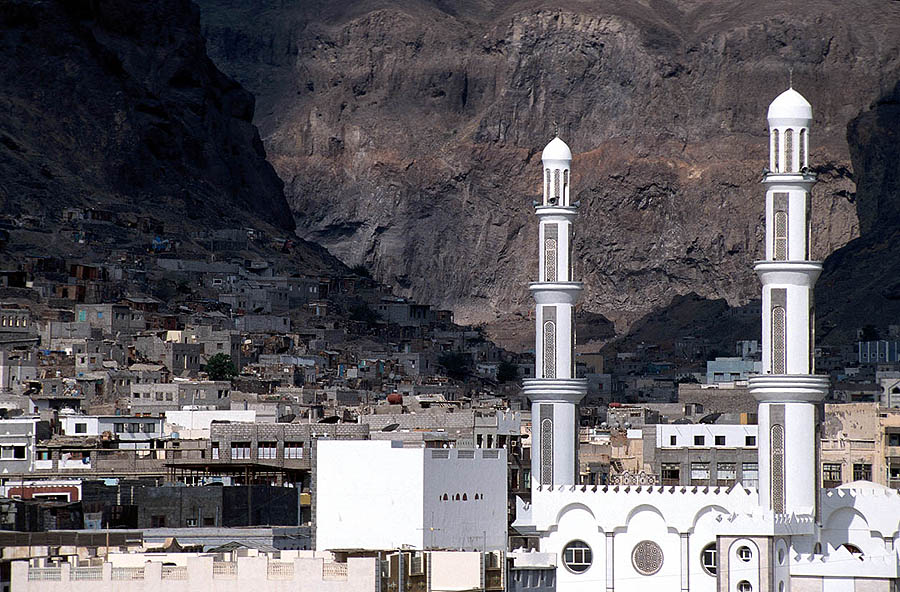 © Wikimedia.org/Jialiang Gao, CC BY-SA
© Wikimedia.org/Jialiang Gao, CC BY-SA
Lusaka (/luːˈsɑːkə/; loo-SAH-kə) is the capital and largest city of Zambia. It is one of the fastest-developing cities in southern Africa. Lusaka is in the southern part of the central plateau at an elevation of about 1,279 metres (4,196 ft). As of 2019, the city's population was about 3.3 million, while the urban population is estimated at 2.5 million in 2018. Lusaka is the centre of both commerce and government in Zambia and connects to the country's four main highways heading north, south, east and west. English is the official language of the city administration, while Bemba, Tonga, Lenje, Soli, Lozi and Nyanja are the commonly spoken street languages. (Source: Wikipedia.org, CC BY-SA)
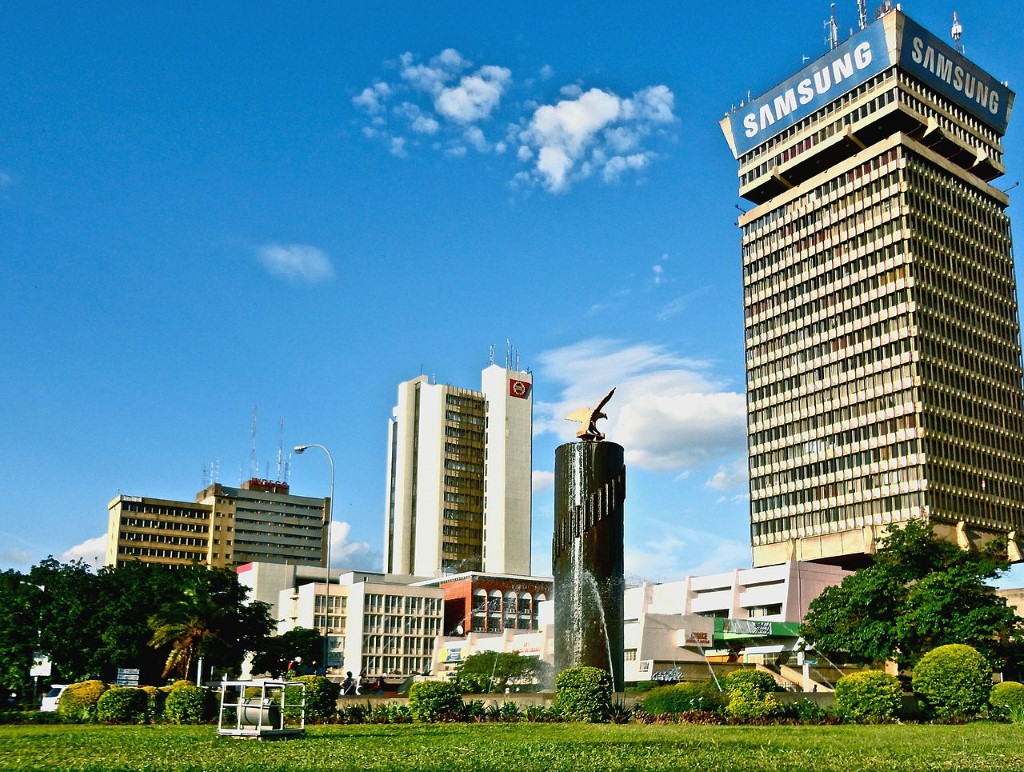 © Wikimedia.org/Matthew Grollnek, CC BY-SA
© Wikimedia.org/Matthew Grollnek, CC BY-SA
Harare (/həˈrɑːreɪ/ hə-RAR-ay), originally known as Salisbury (/ˈsɔːlzbəri/ SAWLZ-bər-ee), is the capital and most populous city of Zimbabwe. The city proper has an area of 940 km2 (371 mi2) and a population of 2.12 million in the 2012 census and an estimated 3.12 million in its metropolitan area in 2019. Situated in north-eastern Zimbabwe in the country's Mashonaland region, Harare is a metropolitan province, which also incorporates the municipalities of Chitungwiza and Epworth. The city sits on a plateau at an elevation of 1,483 metres (4,865 feet) above sea level and its climate falls into the subtropical highland category. (Source: Wikipedia.org, CC BY-SA)
Kabul (/ˈkɑːbʊl, kəˈbʊl/; کابل; Pashto: [kɑˈbəl]; Dari: [kɑːˈbʊl]) is the capital and largest city of Afghanistan. Located in the eastern half of the country, it is also a municipality, forming part of the Kabul Province; it is administratively divided into 22 municipal districts. According to late 2022 estimates, the population of Kabul was 3.5 million people. In contemporary times, the city has served as Afghanistan's political, cultural, and economical center, and rapid urbanisation has made Kabul the 75th-largest city in the world and the country's primate city. (Source: Wikipedia.org, CC BY-SA)

Time for recess! Post a comment, ask a question or write a review. Feel free to let us know what you think!
look at the sign on the road to avoid accidents and horrible driving conditions
I received a 300$ ticket because I passed a police control of other cars/drivers on the right lane of a highway (the control was on the hard shoulder of the highway). Is it really true, that you have to change the lane in such cases? Thanks!
I am an American living in Italy. The Italian Drivers License theory test is the hardest test I have ever studied for and I am in my 70s have multiple degrees, multiple professional certifications. Have to take the Italian Drivers Theory test in Italian. No english. So many rules. More signs in small medieval Italian town I live in then in major US cities I have lived in. No Italian license no driving. No buying or renting a car. Test here was good, clean. Lots of tricky questions on many practice and real official tests. Thanks
Most problems are a result of higher than safe driving speeds. Please just slow down and be patient.
Question 121: Poor translation: Vehicles with polluted fluids prohibited Should be translated as: Vehicles with dangerous liquids prohibited
Question 83: Poor translation: Vehicles with polluted fluids prohibited Should be translated as: Vehicles with dangerous liquids prohibited
Want even more practice? Visit similar websites offering realistic practice driving knowledge tests. Visit us to see what sets our tests apart! https://dkttest.com/capital-territory/
Cool tool! And fun to check whether I remember the rules :) Two things I noticed: Warning for a crossroad side roads on the left and right. While technically that might be the correct translation, this sign tells you, that you are on the main road and have the right of way for the next crossroad and only the next crossroad. Usually (if no sign specifies otherwise) you have to give way to drivers coming from the right at every intersection, which can get a bit annoying in communal areas, so seeing this sign feels less like a warning and more like relief :). A Fahrradstraße is not a lane for cyclists but a street for cyclists, meaning the (whole!) street is intended predominantly for cyclists, who are then allowed to ride next to each other. Cars are allowed to drive there (unless another sign prohibits such), but have to adjust their speed to the cyclists. I believe they are not allowed to pass at all, even if the oncoming lane is empty.
More community